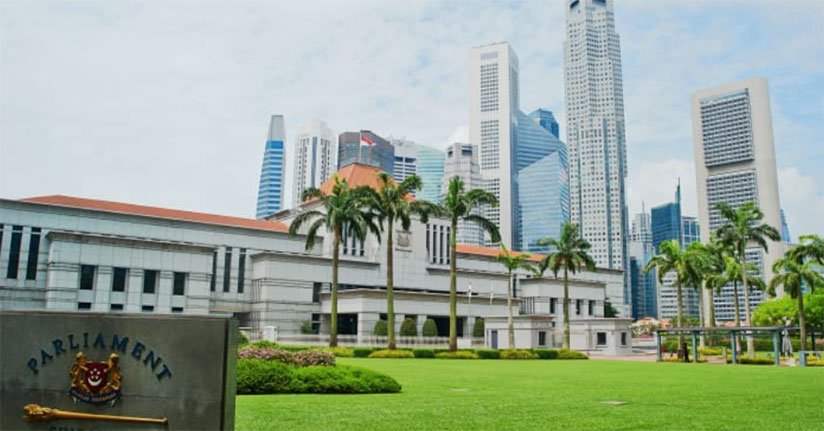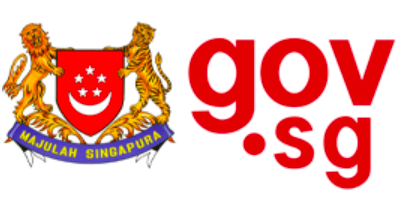4 ways the Resilience Budget is helping Singapore’s businesses stay afloat

The COVID-19 pandemic is likely to have long-lasting economic repercussions, as the global economy faces demand and supply shocks, falling growth forecasts and rising uncertainty.
To pull through this difficult time, additional support will be given to businesses. Addressing immediate challenges, the Resilience Budget will tackle the 3 Cs on business owners minds – cash flow, cost, and credit, in addition to offering help to specific sectors affected by COVID-19
Here are the four ways the Resilience Budget is going to help businesses:

The Government is working to flow payouts under the wage support schemes quickly to provide timely assistance. By end-May 2020, a total of $5.6 billion would have been paid out. On top of this, an additional $500 million of wage credits under the enhanced support will be brought forward. Altogether, by Oct 2020, $16.2 billion will flow into the hands of businesses through the Job Support Scheme and Wage Credit Scheme.
To further ease cashflow as businesses await cash from wage support schemes, companies and self-employed persons will be granted an automatic deferment of income tax payments for 3 months. No application will be required.
| Businesses | Deferment of income tax payment due in |
|---|---|
| Companies | Apr, May and Jun 2020 |
| Self-employed persons | May, Jun and Jul 2020 |
| Employees | May approach IRAS if they need help with tax payments and wish to avail themselves to this arrangement |
Help with business costs
Where the cost is within the Government’s control, it will do its best to help.
The Property Tax Rebate announced in the Unity Budget will be enhanced, by raising the amount and covering more types of properties:
- For 2020, qualifying commercial properties that have been more badly affected by the COVID-19 outbreak will pay no Property Tax. These include hotels, serviced apartments, tourist attractions, shops, and restaurants. This is a step up from the 15%-30% Property Tax Rebate announced earlier.
- Businesses in other non-residential properties such as offices and industrial properties affected by the COVID-19 situation will be granted a Property Tax Rebate of 30% for the year 2020.
Landlords are urged to fully pass on the rebate to tenants by reducing rentals, to directly ease the cash flow and cost pressures faced by tenants.
Rental waivers will be enhanced to support tenants.
| Tenant | Rental Waivers |
|---|---|
| Stallholders in hawker centres managed by NEA or NEA-appointed operators |
3 months |
|
Eligible tenants under government agencies |
2 months |
|
All other non-residential tenants |
0.5 month |
In addition, all government fees and charges will be frozen for one year, from 1 April 2020 to 31 March 2021.
Help with credit
Financing schemes will be further enhanced so that even the hardest-hit businesses will continue to have access to credit.
Earlier enhancements were made to the Enterprise Financing Scheme (EFS) – SME Working Capital Loan to alleviate SMEs’ cash flow concerns, and the Temporary Bridging Loan Programme (TBLP) was introduced for enterprises in the tourism sector.
To support businesses’ trade financing needs, the EFS – Trade Loan will be enhanced, with the maximum loan quantum being increase from $5 million to $10 million, and an increase in the Government’s risk-share to 80%, up from 70%.
Subsidies to businesses for loan insurance premiums will be increased from 50% to 80%, under the Loan Insurance Scheme.
The Temporary Bridging Loan Programme will be expanded to all enterprises, and the maximum supported loan will be increased from $1 million to $5 million.
SMEs that require support beyond the TBLP can continue to tap on the EFS – SME Working Capital Loan. The maximum loan quantum for this will be further enhanced, from $600,000 to $1 million.
The Government will work with Participating Financial Institutions to defer capital payments for one year on the EFS-Working Capital Loan and the TBLP loans if requested by businesses, subject to assessment by Participating Financial Institutions.
In addition to financing schemes, $20 billion of loan capital will be set aside this budget. This will help to support good companies with strong capabilities, and catalyse private sector loan capital.
Businesses and individuals facing cash flow challenges will be receive help from the Monetary Authority of Singapore, which is working with banks and insurers, for their loan obligations and insurance premium payments.
Help for sectors most affected by COVID-19
Additional help will be given to specific sectors that are most directly affected by COVID-19. These include sectors that rely on tourism and international travel, which have been hit the hardest, as well as sectors that involve a high level of human interaction that have been hit by safe distancing measures.
Enhanced Jobs Support Schemes will be rolled out for business in the aviation, tourism and food service sectors. For every local worker employed, a total of up to 75% wage offset for the first $4,600 of monthly wages will be provided.
A $350 million enhanced aviation support package will be introduced to fund measures such as rebates on landing and parking charges, and rental relief for airlines, ground handlers and cargo agents.
$90 million will be set aside to help the tourism industry rebound strongly, when the time is right.
The Point-to-Point Support Package to help taxi and private hire car drivers will be extended and enhanced. Eligible taxi hirers and PHC drivers will continue to receive the Special Relief Fund payments of $300 per vehicle per month until end-Sep 2020.
Private bus owners will be given a one-year road tax rebate and a six-month waiver of parking charges at government-managed parking facilities.
The arts and culture sector will be given an additional $55 million support package, to save jobs and support upskilling and digitalisation of the sector.
What businesses can do in the meantime
As Singapore prepares for recovery, businesses should continue to make use of this downtime to digitalise, restructure, and transform.
They can leverage the SMEs Go Digital Programme, the Productivity Solutions Grant (PSG) and the Enterprise Development Grant (EDG) to do so. These schemes will be enhanced until Dec 2020, in the following ways:
- SMEs Go Digital Programme will provide support for more digital solutions, from basic remote working tools, to more advanced systems.
- Maximum support levels for PSG and EDG raised to 80% and 90% respectively to spur transformation.
Upgrading workers’ skills must continue to be a focus, thus enhanced support for skills upgrading will be provided in the following ways:
- Course fee subsidies will be extended to the arts and culture and land transport sectors from 1 Apr 2020. This is on top of enhanced training support for aviation, tourism, food services, and retail trade sectors previously announced at the Unity Budget.
- 90% absentee payroll rates will be extended to all employers, to provide additional cash flow relief when they send their workers for training, from 1 May 2020.
- The duration of the enhancements will also be extended, to cover eligible courses starting before 1 January 2021.
Source: https://www.gov.sg/


